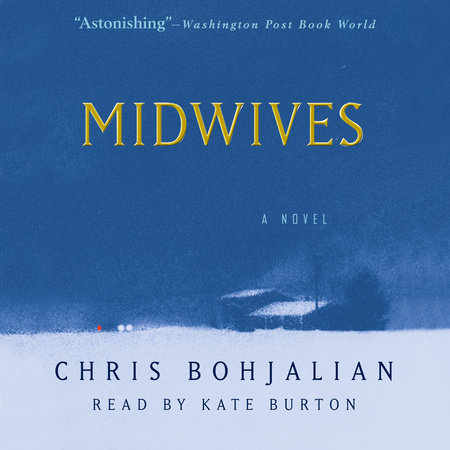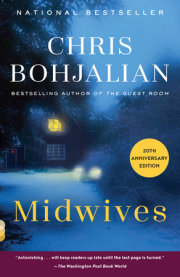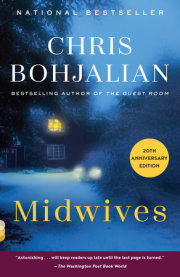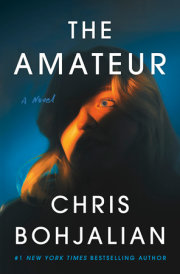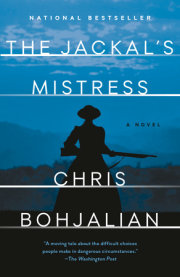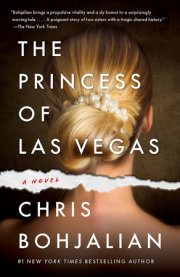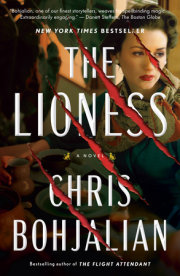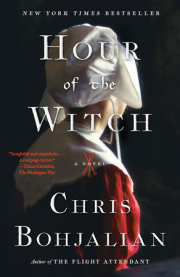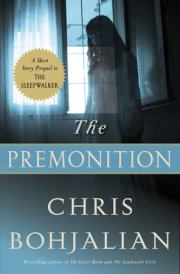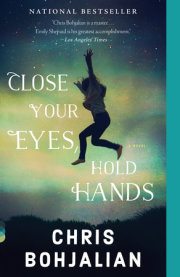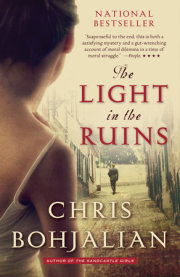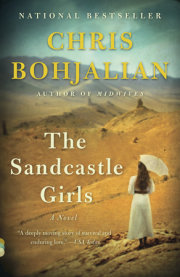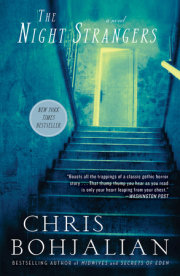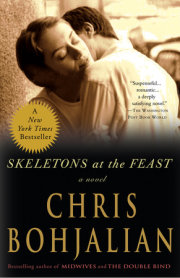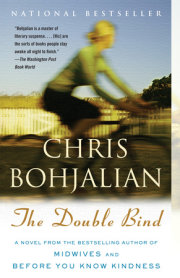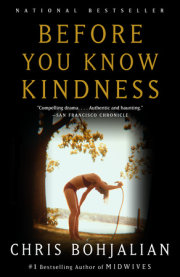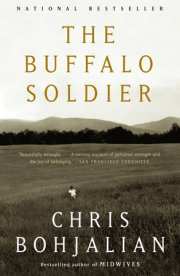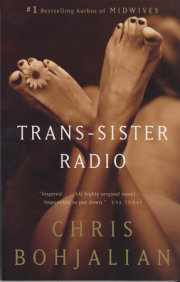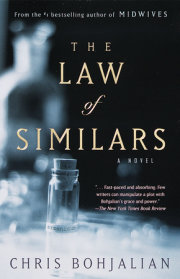Throughout the long summer before my mother's trial began, and then during those crisp days in the fall when her life was paraded publicly before the county--her character lynched, her wisdom impugned--I overheard much more than my parents realized, and I understood more than they would have liked.
Through the register in the floor of my bedroom I could listen to the discussions my parents would have with my mother's attorney in the den late at night, after the adults had assumed I'd been sleeping for hours. If the three of them happened to be in the suite off the kitchen my mother used as her office and examining room, perhaps searching for an old document in her records or a patient's prenatal history, I would lie on the bathroom floor above them and listen as their words traveled up to me through the holes that had been cut for the water pipes to the sink. And while I never went so far as to lift the receiver of an upstairs telephone when I heard my mother speaking on the kitchen extension, often I stepped silently down the stairs until I could hear every word that she said. I must have listened to dozens of phone conversations this way--standing completely still on the bottom step, invisible from the kitchen because the phone cord stretched barely six feet--and by the time the trial began, I believe I could have reconstructed almost exactly what the lawyer, friend, or midwife was saying at the other end of the line.
I was always an avid parent watcher, but in those months surrounding the trial I became especially fanatic. I monitored their fights, and noted how the arguments grew nasty fast under pressure; I listened to them apologize, one of them often sobbing, and then I'd wait for the more muffled (but still decipherable) sounds they would make when they would climb into bed and make love. I caught the gist of their debates with doctors and lawyers, I understood why some witnesses would be more damning than others, I learned to hate people I'd never met and whose faces I'd never seen. The state's medical examiner. The state's attorney. An apparently expert midwife from Washington, D.C.
The morning the judge gave the jury its instructions and sent them away to decide my mother's fate, I overheard her attorney explain to my parents what he said was one of the great myths in litigation: You can tell what a jury has decided the moment they reenter the courtroom after their deliberations, by the way they look at the defendant. Or refuse to look at him. But don't believe it, he told them. It's just a myth.
I was fourteen years old that fall, however, and it sounded like more than a myth to me. It had that ring of truth to it that I heard in many wives'--and midwives'--tales, a core of common sense hardened firm by centuries of observation. Babies come when the moon is full. If the boiled potatoes burn, it'll rain before dark. A bushy caterpillar's a sign of a cold winter. Don't ever sugar till the river runs free.
My mother's attorney may not have believed the myth that he shared with my parents, but I sure did. It made sense to me. I had heard much over the past six months. I'd learned well which myths to take to my heart and which ones to discard.
And so when the jury filed into the courtroom, an apostolic procession of twelve, I studied their eyes. I watched to see whether they would look at my mother or whether they would look away. Sitting beside my father in the first row, sitting directly behind my mother and her attorney as I had every day for two weeks, I began to pray to myself,
Please don't look at your shoes, please don't look at the judge. Don't look down or up or out the window. Please, please, look at me, look at my mother. Look at us, look here, look here, look here.I'd watched the jurors for days, I'd seen them watch me. I'd counted beards, I'd noted wrinkles, I'd stared beyond reason and courtesy at the way the fellow who would become the foreman had sat with his arms folded across his chest, hiding the hand disfigured years earlier by a chain saw. He had a thumb but no fingers.
They walked in from the room adjacent to their twelve chairs and found their seats. Some of the women crossed their legs at their knees, one of the men rubbed his eyes and rocked his chair back for a brief second on its rear legs. Some scanned the far wall of the courtroom, some looked toward the exit sign above the front door as if they realized their ordeal was almost over and emancipation was at hand.
One, the elderly woman with white hair and a closet full of absolutely beautiful red flowered dresses, the woman who I was sure was a Lipponcott from Craftsbury, looked toward the table behind which the state's attorney and his deputy were sitting.
And that's when I broke down. I tried not to, but I could feel my eyes fill with tears, I could feel my shoulders beginning to quiver. I blinked, but a fourteen-year-old girl's eyelids are no match for the lament I had welling inside me. My cries were quiet at first, the sound of a mournful whisper, but they gathered fury fast. I have been told that I howled.
And while I am not proud of whatever hysteria I succumbed to that day in the courtroom, I am not ashamed of it either. If anyone should feel shame for whatever occurred that moment in a small courthouse in northeastern Vermont, in my mind it is the jury: Amidst my sobs and wails, people have said that I pleaded aloud, "Look at us! Oh, God, please, please look at us!" and still not one of the jurors would even glance in my mother's or my direction.
. All rights reserved. No part of this excerpt may be reproduced or reprinted without permission in writing from the publisher.

